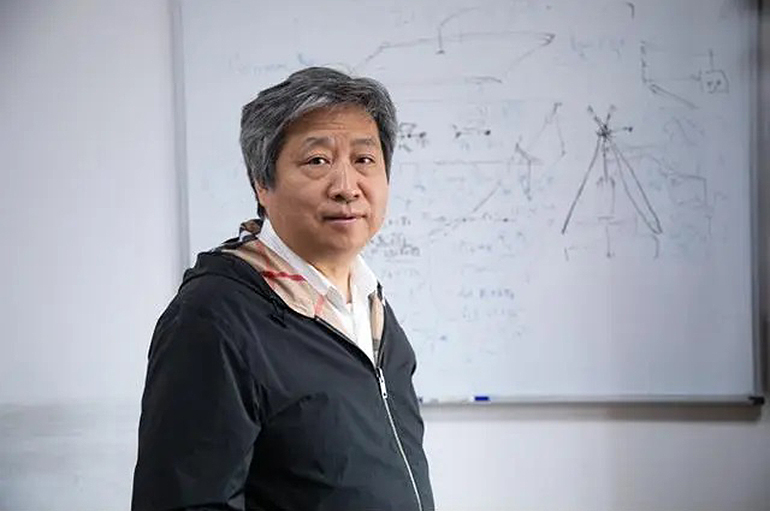 Top Chinese Scientists: Mysterious Particle Seeker Jia Jinfeng
Top Chinese Scientists: Mysterious Particle Seeker Jia JinfengChina’s basic research and cutting-edge technology research has made great strides in recent years, and behind every major scientific achievement, there is an interesting personal story. Yicai has launched the “Top Chinese Scientists” column to get closer to these scientific luminaries through a series of interviews.
(Yicai) Aug. 22 -- Chinese scientist Jia Jinfeng and his team were the first to detect “Majorana fermion,” a mysterious particle that the world’s physics community had been searching for for 80 years. The discovery, made in 2016, has huge ramifications for the development of quantum computers and information technology and will shed more light on the mystery of dark matter.
“Our work is to understand the nature of the Majorana fermion, so as to be able to manipulate it and make it appear wherever we want,” Jia, who is a scholar at the Chinese Academy of Sciences, told Yicai in a recent exclusive interview.
Majorana fermions was hypothesised by Italian physicist Ettore Majorana in 1937. He said that this strange particle would be a special being, and the particle itself would be exactly the same as its antiparticle.
“If we succeed, we can use it for topological quantum computing,” said Jia, who is also deputy dean of the School of Physics and Astronomy of Shanghai Jiaotong University and acting vice president of Southern University of Science and Technology.
So far, there is no true quantum computer in the world. One of the reasons is that the quantum state of the particles used for quantum computing is not stable. However, the special existence of Majorana fermions makes the state very stable. The property may become the key to the manufacture of quantum computers, helping humans open up the era of topological quantum computing, which has far superior computing power to supercomputers.
However, as finding Majorana fermions is already so difficult, will it be more difficult to control?
Jia said that to control the movement of Majorana fermions, more physics and engineering experts are needed. “The manipulation of movement should be achieved within a few years, but what is more difficult is to measure the results after implementation to see if it is consistent with the theory. This has not been done before. However, if we achieve these goals, we can use them in topological quantum computing.”
Jia has been engaged in physics research for 40 years, and in his opinion, basic research is a crucial part of the innovation chain, especially in physics, because every small win changes society.
“Many years ago, studying physics was very hard. However, conditions are much better now in many aspects from research funding to research instruments,” Jia said. “Also, in recent years, more attention is being paid to the development of scientific and technological talent, and our income is no worse than in other industries.”
He believes that what is more important than funding and advanced instruments at the moment is the overall attitude to basic research in society. “When the whole of society becomes aware of the importance of basic research without us having to publicize it, this will spontaneously strengthen basic research, enable cooperation with people who do basic research and promote the development of all walks of life. This will create a very productive environment.”
Editors: Chen Juan, Kim Taylor